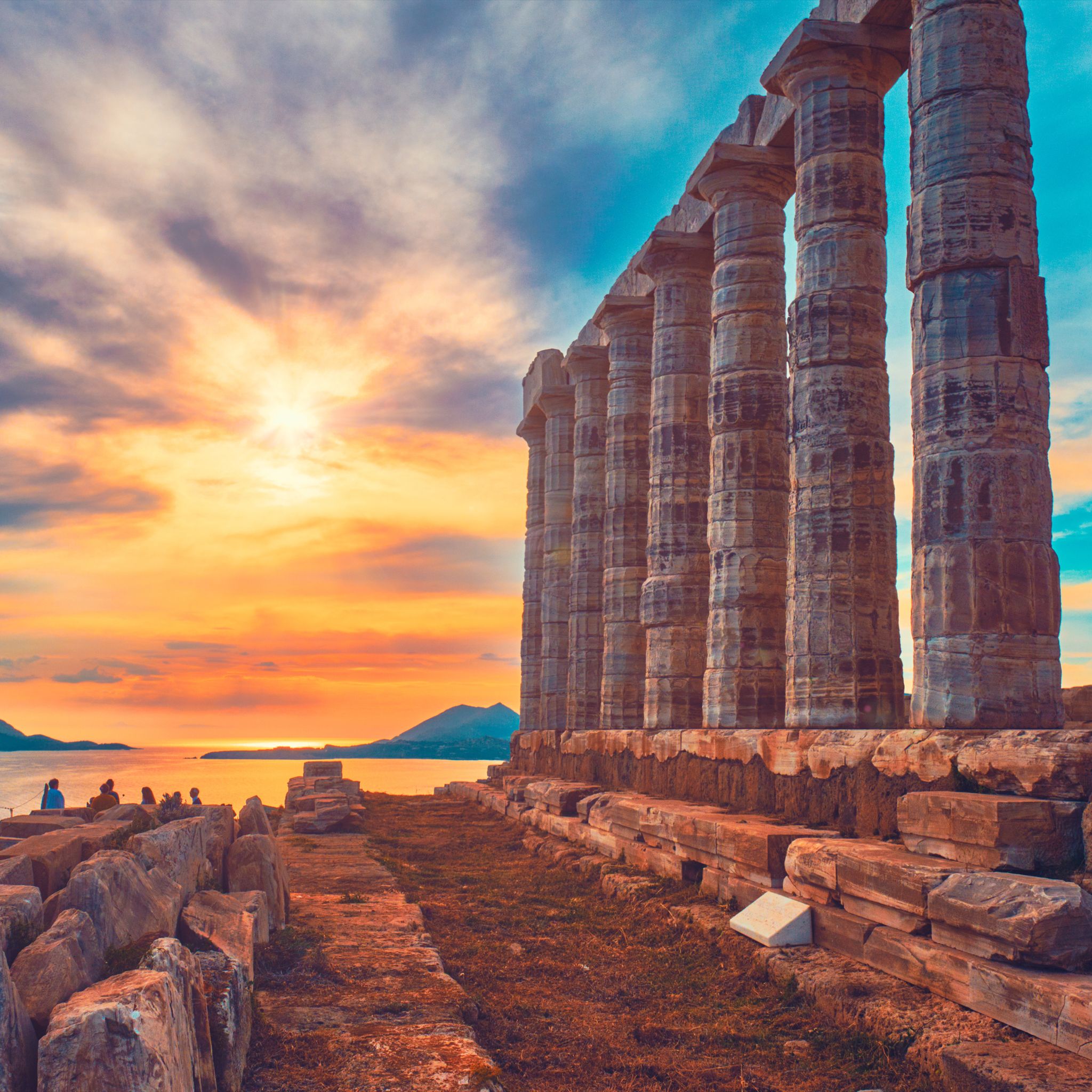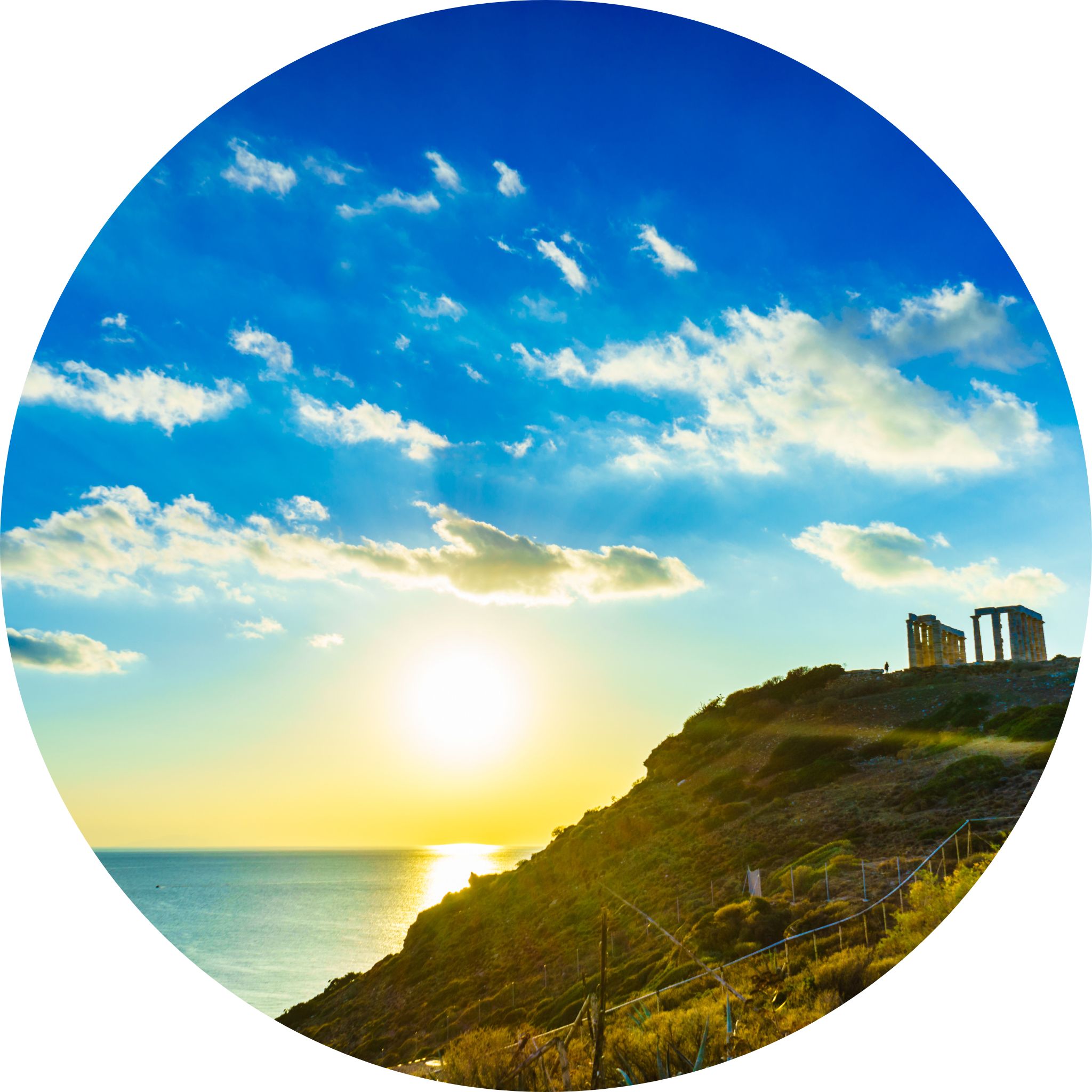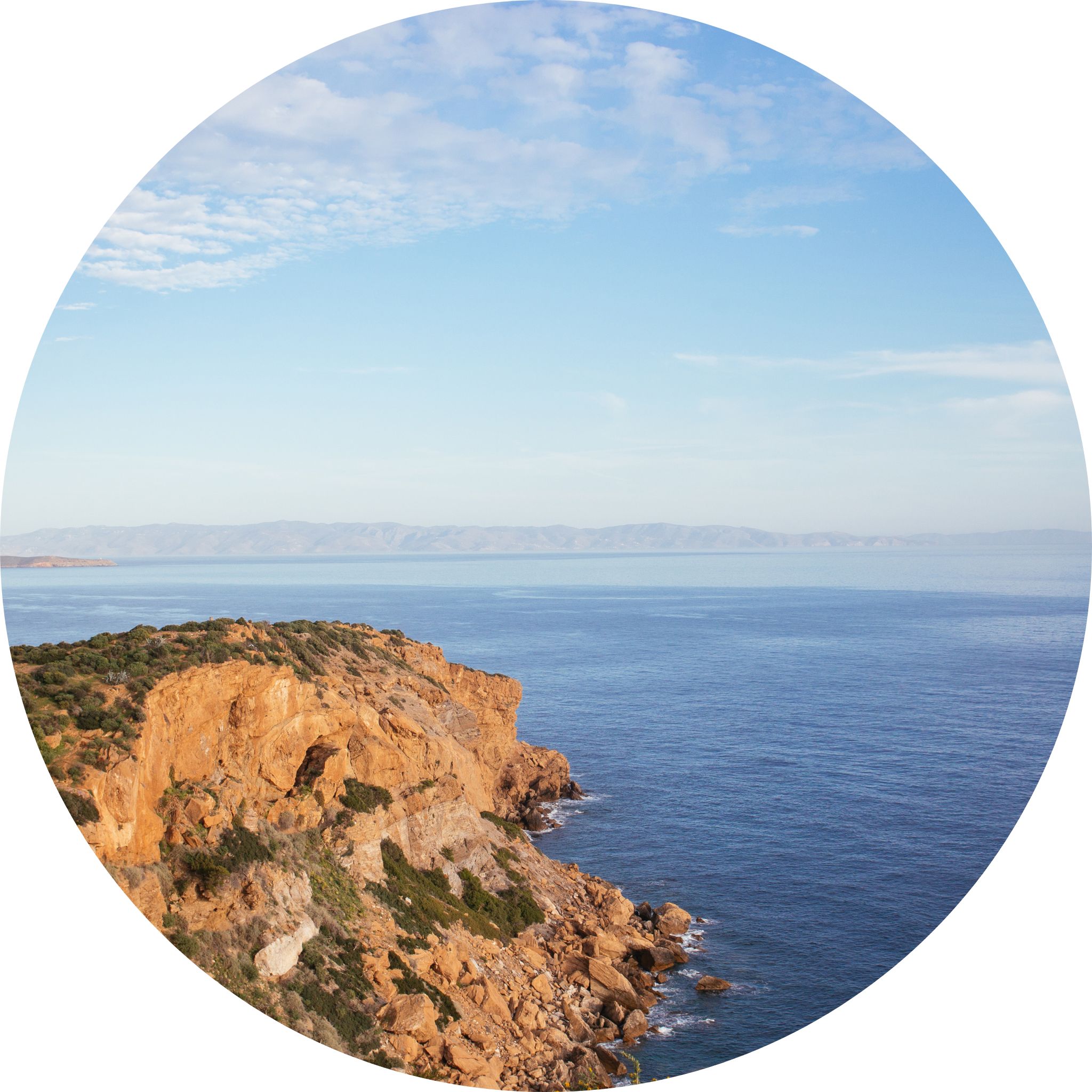

The staggering view is the main event here. Right at the point of a peninsula, the magnificent hills of Cape Sounion offer an incredible scope of view, literally as far as the eye can see. The gracious temple which nests on top of the rocky hill draws the picture-perfect image of ancient grace.
The location has a tremendous vibe which you can feel immediately and was of sentimental importance to the Athenians already since ancient times. This was the last point where they could see the ships sailing away in battle and returning to their homeland.
This is why the temple was dedicated to the god of the seas, so as to placate his tempestuous nature and secure their safe sailing.

The moment you step on board a luxury charter yacht, your world is opened to the ultimate in luxury, privacy and freedom.

When we set sail to Sounio we always make our stop right under the temple. The dramatic cliff on top of which the temple lies spreads right above us. You get to jump off the Bounty straight into the turquoise waters as our captain prepares a delicious lunch! The majestic temples, the staggering views and the incredible energy of the location will make this swim like no other you ever had. You simply have to experience it!

The stories that surround this sacred cliff are endless. Perhaps the most well known is the most tragic one. As the myth has it, King Aegeus was waiting for his son Theseus to return from Crete where he set off on an expedition with the Argonauts to kill the Minotaur. Theseus told his father that if he would manage to kill the Minotaur he would sail back with white sails so that he could see from afar that he comes back successful. While he did indeed kill the Minotaur and was returning to Athens safe and sound, he forgot to switch the sails from black to white. Aegeus, waiting for Theseus’s return flung to his death from here, drowning his sorrow in mistakenly believing that his son has died. Later on the Athenians named the sea after him.
We combine yacht with local destination information, sample itineraries and experiences.